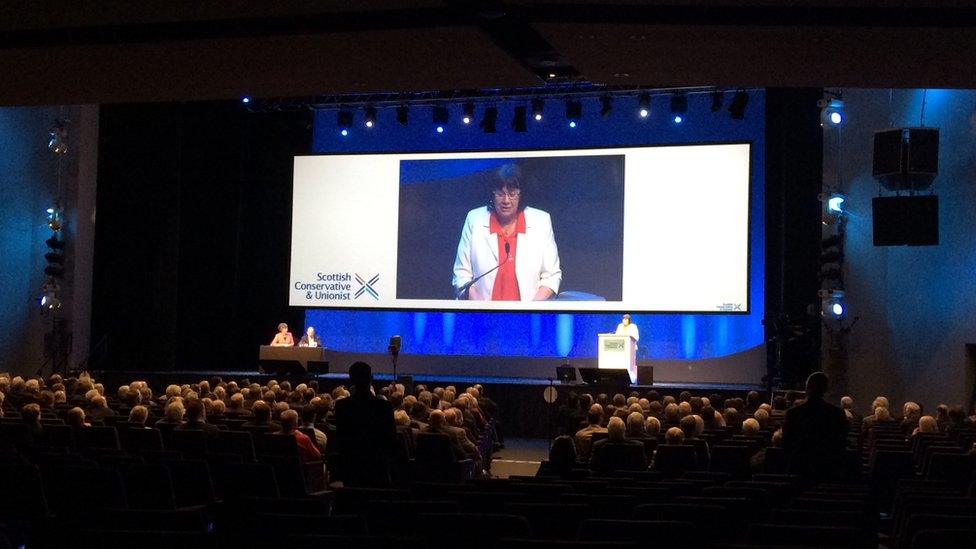Frank's Law: Scottish Conservatives push for dementia care law change
- Published

Frank Kopel, who had a 10-year career at Dundee United, was diagnosed with dementia in 2008
Free care for dementia patients could be extended to those under the age of 65 under proposals set out at the Scottish Conservative conference.
The party confirmed it would launch a Holyrood member's bill in the summer to introduce the so-called Frank's Law.
It is named after former Dundee United footballer Frank Kopel, who died in 2014 after being diagnosed with dementia.
Mr Kopel's wife, Amanda, has been campaigning for a change in the law.
People under the age of 65 who require personal care have to pay for it - however, it is free to those over the age of 65 who are assessed by their local authority as needing it.
Degenerative conditions
Mrs Kopel has been calling for the rules to be changed in order for people under 65 who are diagnosed with dementia and other degenerative conditions such as motor neurone disease, Parkinson's, multiple sclerosis and cancer to also be eligible for free care.
Her husband, who started his career at Manchester United before playing more than 280 games for Dundee United, was 59 when he was diagnosed with vascular dementia and Alzheimer's in 2008.
His family had to pay out about £300 a week on personal care towards the end of his life - with Mr Kopel eligible for just 19 days of free care before his death at the age of 65 in April 2014.

Amanda Kopel was given a standing ovation after an emotional speech to the Conservative conference
Mrs Kopel was given a standing ovation at the Scottish Conservative conference in Glasgow after telling delegates there was "blatant discrimination" against dementia patients aged under 65.
The Conservatives say there is a majority of MSPs at Holyrood who are in favour of changing the law - with only the SNP currently opposed.
Conservative mental health spokesman Miles Briggs told the conference that he had met with the Scottish Parliament authorities and would table the bill in the coming months.
Mr Briggs had previously announced he would act if the Scottish government did not.
'Vital care'
He said: "It is a shocking indictment on this SNP government's record on health that terminally ill patients under the age of 65 are being charged for the basic help they need.
"Many patients and families have told me, when you're on your deathbed, worrying about where you'll find money to pay for vital care is the last thing you want to go through.
"That's why Frank's Law is needed today, it was needed yesterday, and I will not let the SNP kick this into the long grass."
A spokeswoman for Health Secretary Shona Robison said the Conservatives "know full well that the Scottish government is already committed to examining the extension of free personal and nursing care to those under 65 while protecting existing provision.
"And we have acted to expand current provision. People with terminal illnesses already qualify for free care, and we have invested £6m to increase the income threshold at which someone becomes liable for charges.
"From 1 April 2017, armed forces veterans will have income from war pensions disregarded from social care financial assessments. And we are transforming the way we treat dementia so more people have their independence for longer and working towards greater supported self-management at home."